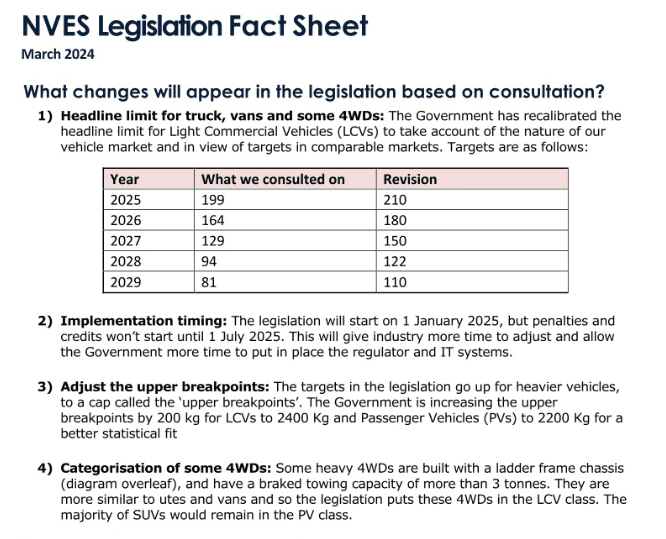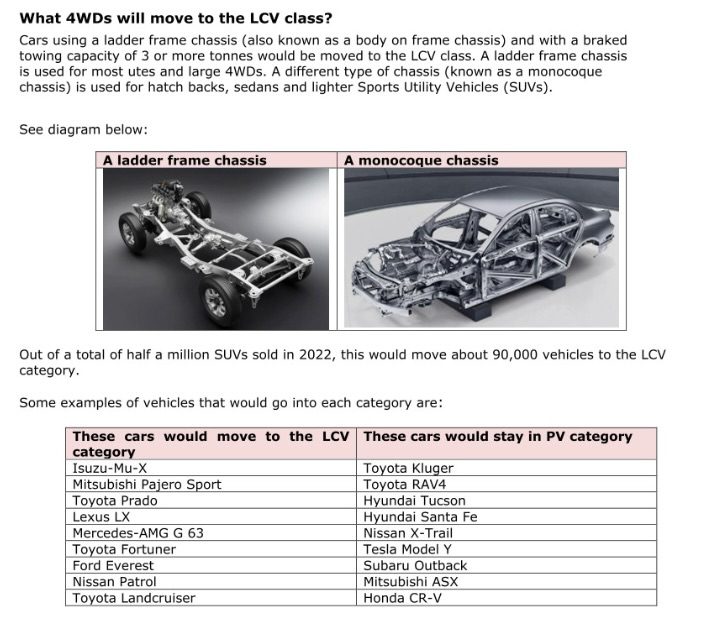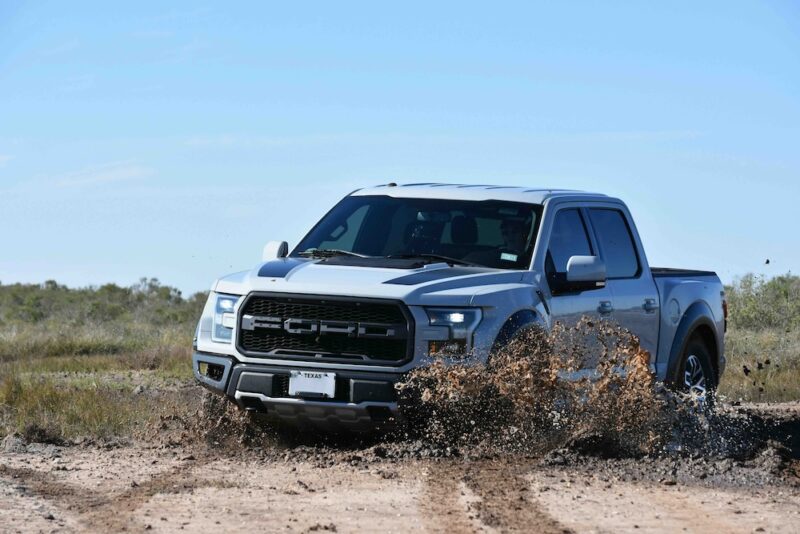It says so much about the state of Australia’s climate policy that the biggest beneficiaries of the latest backdown on emissions targets are the makers of some of the most expensive, luxurious and polluting 4WD vehicles on Australian roads.
An epic two-month long sook by a small group of foreign companies that sell highly polluting vehicles has resulted in the weakening of Australia’s proposed fuel efficiency standard, and a sacrificed saving of 40 million tonnes of Co2 emissions, as well as higher higher levels of toxic diesel air pollution for many years to come.
The group succeeded in their demands to water down the pollution standard despite overwhelming evidence showing the devastating impact that vehicle exhaust pollution has on human health and climate, as well as polling showing overwhelming support for the proposed standard.
Such policy “compromise” is often portrayed as important to the cost of living for the average “punter”. But there is no disguising the winners here.
The exemptions, or “re-categorisation” of luxury SUVs into the “light commercial class” included such everyman vehicles as the Mercedes AMG-G 63 (price range $180,000 to $350,000), and the Lexus LX (around $200,000). Most of the other models included have variants that cost well over $100,000.
Light commercial vehicles, mostly utes, also benefit from a higher headline limit of 210 grams of CO2 per km in 2025 (up from 199 saving $1,100 in fines per vehicle), and 110 g/km in 2029, instead of the originally proposed 81 g/km.
That will translate to a $2,900 per vehicle reduction in potential fines, putting less urgency on the big car makers to actually make changes to their fleet.
It means that the emissions reductions hoped for from the policy are reduced from 369m tonnes of CO2 to 321m tonnes by 2050. This means thanks to the fossil car lobby’s efforts, an extra 48 million tonnes will be emitted from the transport sector by 2050.

In addition to weakening the headline limits of LCVs, the government has also delayed the need to trade credits by six months, increased the “upper breakpoint” for weight based allowances by 200 kg and given itself some wriggle room about how and if fines are imposed.
Fossil car lobby’s two month campaign against pollution regulation
Since the government’s original proposed New Vehicle Efficiency Standard (NVES) was announced on February 4, the Australian fossil car lobby has produced a series of misleading claims about the policy and threatened to launch a 2010 anti-mining tax style fear campaign against the government if they didn’t get their way.
In a sign of just how low expectations of government are in Australia, most organisations, including environmental groups, welcomed the changes announced on Tuesday, which have garnered the support of the fossil fuel giants such as Toyota, if not the federal Coalition or the Greens.
These groups were at pains to point out how remarkable it is, given Australia’s political situation, that we now stand the chance of actually having vehicle emissions standards. But it is equally remarkable, and testimony to the power of the fossil fuel lobby, that – apart from Russia – Australia is the only western country in the world that doesn’t have them.
Some groups such as Greenpeace were more circumspect about the compromise announced on Tuesday.
“Re-classifying luxury SUVs, like the Lexus LX, as a ‘light commercial vehicle’ doesn’t pass the pub test, and is clearly a concession to automakers who earn their biggest profits from massive cars,” said Greenpeace Australia Pacific campaigner Joe Rafalowicz.
“The decision to weaken the standards when it comes to Light Commercial Vehicles will mean around 20% more carbon pollution will be allowed by 2030 compared to the original proposal – so we expect the Government will be looking at other options for reducing pollution from transport to meet their climate targets.

“But we are pleased to see the overall pollution reduction goals of the scheme are intact, which the Government should be commended for,” Rafalowicz said.
“This important climate decision will make all the difference when it comes to urgently bringing more affordable electric vehicles into Australia and is crucial if Australia is to meet its climate targets.
While many statements welcomed the new standard despite the last minute changes, some of the comments on The Driven’s coverage of the announcement were more scathing.
“When Australia’s most popular family vehicles are excluded from the regulations, the integrity of the scheme is being undermined. Congratulations on a least-worst better-than-nothing, lets-hope-this-all-blows-over policy,” said the president of the Australian Electric Vehicle Association Chris Jones on the announcement.
Another comment from “Scott” pointed out the contradiction of a policy that should be incentivising a shift to smaller, cleaner cars but actually has concessions for heavier, higher polluting vehicles.
“Introduce a policy to try to control the ever increasing size and pollution of large SUV’s and utes. Then recategorise those same SUV’s and utes so the policy doesn’t apply. What a waste of time.”
Move to weaken rather than strengthen proposal shows influence of fossil fuel industry
Despite overwhelming support for stronger standards, the fact a small group of people representing foreign companies that sell highly polluting vehicles can water down pollution standards and delay Australia’s clean air future is concerning.
While the introduction of the new standard is being applauded by some, the fact that the government walked back its original proposal rather than strengthening it shows Australia’s political arena remains largely captured by the fossil fuel and fossil car industry.
Australia remains shackled to an industry that pays no consequences for polluting our cities with both air and noise pollution, while cooking the planet with ever increasing greenhouse gas emissions.
The result of all this is that Australian cities are now clogged with millions of personal Tonka Trucks, the vast majority of which are driving around with empty trays while spewing out copious amounts diesel exhaust pollution into the air we all breathe.
Next time you’re at your local cafe or restaurant or dropping your kids to school, stop and have a look, or smell, at the exhaust pouring out of the vehicles around you. It is as inescapable as the constant background noise of the thousands of internal combustion engines endlessly roaring around your local community.
In Europe, communities and governments are acting by banning such vehicles from their towns and cities. In Australia, we’ve all become numb to how terrible it is. When will we wake up to it? How much longer will we wait before we decide to fix this?

Daniel Bleakley is a clean technology researcher and advocate with a background in engineering and business. He has a strong interest in electric vehicles, renewable energy, manufacturing and public policy.

